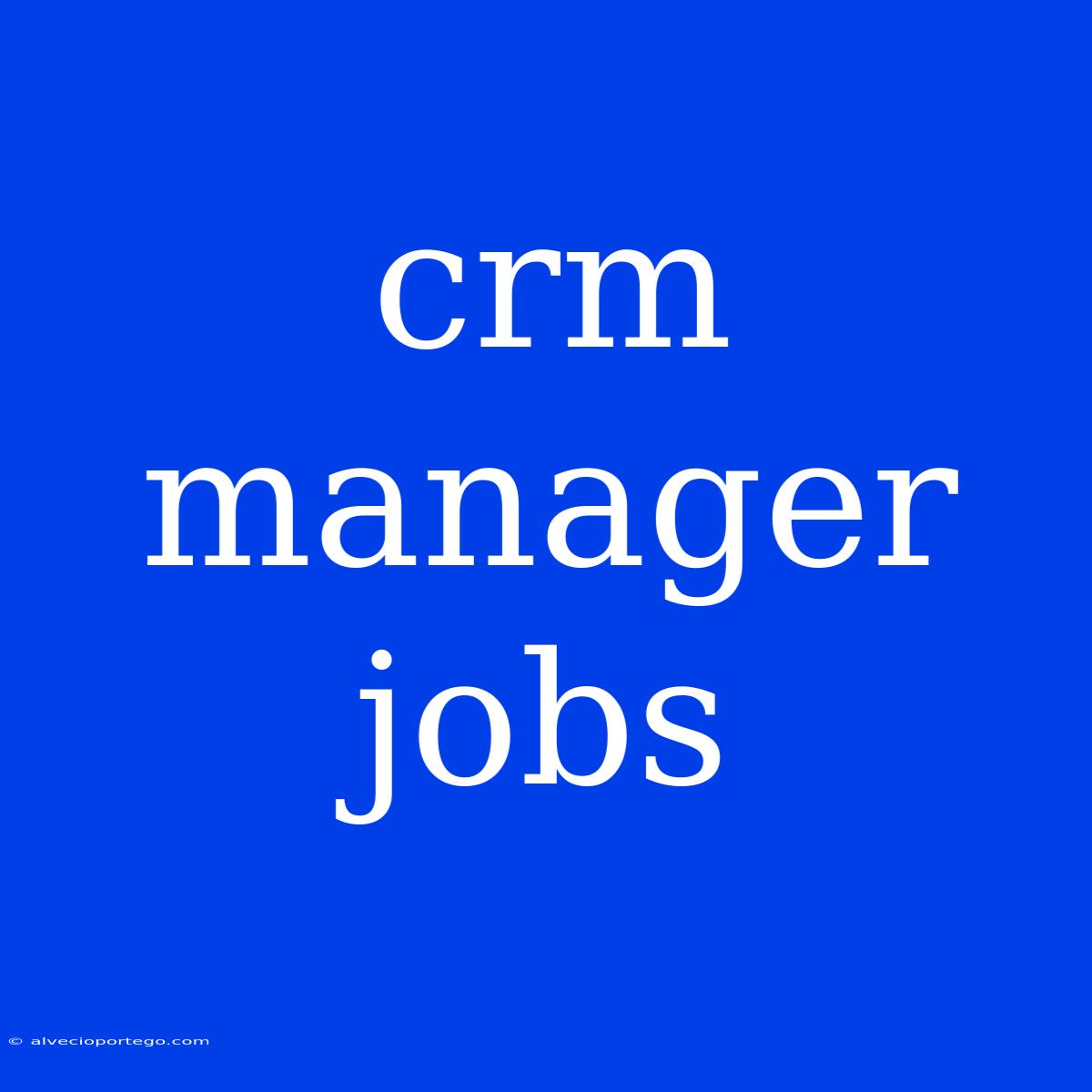CRM Manager: A Guide to the Role and Career Path
A CRM Manager is a key player in any organization that relies on customer relationships for success. This role is responsible for overseeing and optimizing the implementation and utilization of Customer Relationship Management (CRM) systems.
What does a CRM Manager do?
Responsibilities of a CRM Manager:
-
Strategy and Planning:
- Define and execute CRM strategy aligned with business goals.
- Develop and maintain CRM roadmap, outlining system enhancements and future implementations.
- Conduct market research and identify new CRM technologies and trends.
-
Implementation and Management:
- Oversee the selection, implementation, and ongoing management of CRM systems.
- Configure and customize CRM systems to meet specific business requirements.
- Develop and maintain data integration strategies.
-
Data Management and Analysis:
- Ensure data integrity and accuracy within the CRM system.
- Analyze CRM data to identify trends, opportunities, and areas for improvement.
- Develop and implement data-driven campaigns and initiatives.
-
Process Optimization and Automation:
- Analyze and optimize CRM processes to improve efficiency and effectiveness.
- Implement automation tools and workflows to streamline customer interactions.
- Develop and maintain CRM user manuals and training materials.
-
Team Management and Collaboration:
- Lead and mentor CRM team members.
- Collaborate with other departments, including sales, marketing, and customer support.
- Foster a data-driven culture within the organization.
Skills Needed to be a CRM Manager:
-
Technical Skills:
- Strong understanding of CRM systems and best practices.
- Proficiency in data analysis and reporting tools.
- Experience with CRM implementation and configuration.
- Knowledge of data management and integration techniques.
-
Soft Skills:
- Excellent communication and presentation skills.
- Strong analytical and problem-solving abilities.
- Ability to work independently and as part of a team.
- Leadership and motivational skills.
Career Path for a CRM Manager:
A CRM Manager can progress in their career through various paths:
- Specialization: Gain expertise in specific CRM applications or industry verticals.
- Leadership: Advance to roles like Director of CRM or VP of Marketing Technology.
- Cross-Functional Roles: Transition into broader roles like Chief Marketing Officer (CMO) or Chief Technology Officer (CTO).
The Benefits of a Career in CRM Management:
- High Demand: The CRM market is rapidly growing, leading to a high demand for skilled professionals.
- Impactful Role: CRM Managers play a vital role in driving customer engagement and business success.
- Variety of Industries: CRM skills are transferable across various industries, offering diverse career options.
- Continuous Learning: The CRM landscape is constantly evolving, requiring ongoing learning and development.
Getting Started in CRM Management:
- Gain Industry Knowledge: Stay updated on CRM trends, technologies, and best practices.
- Develop Technical Skills: Obtain certifications in CRM software and data analysis tools.
- Build Experience: Start with entry-level roles like CRM Analyst or Business Analyst.
- Network with Professionals: Attend conferences, join online communities, and connect with experienced CRM professionals.
A career in CRM Management offers a rewarding and challenging opportunity to drive customer engagement and contribute to business growth. By developing the necessary skills and building experience, you can carve out a successful path in this dynamic and growing field.

